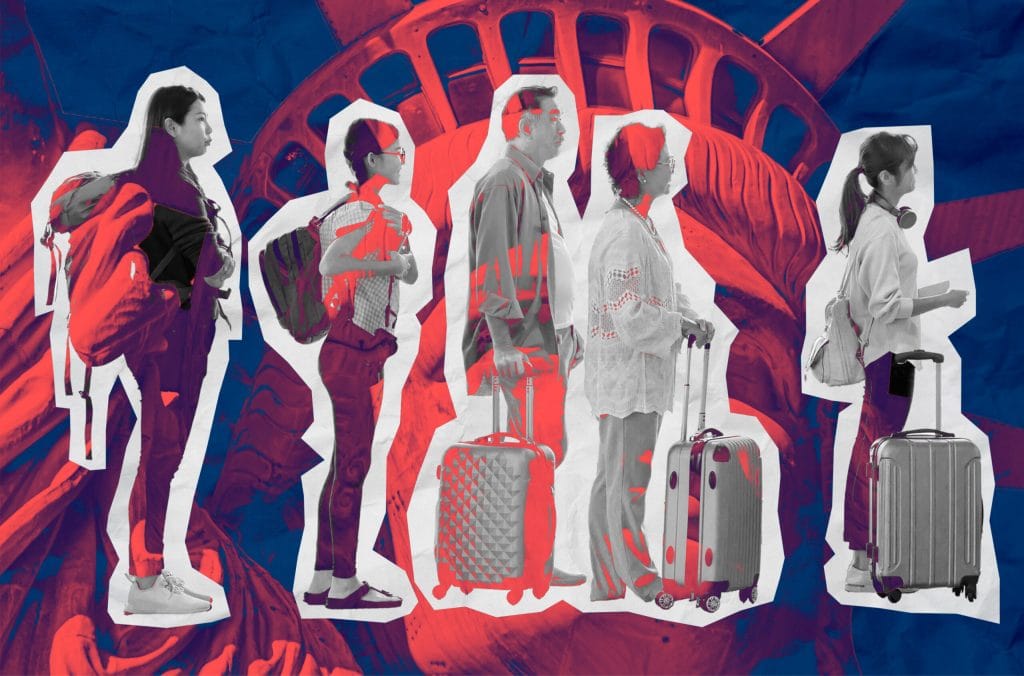
Tumultuous diplomatic relations with the United States have heightened tensions and scrutiny at the U.S. border as the second administration of President Donald Trump cracks down on immigration and security. This may cause anxiety for Canadian researchers who are increasingly vulnerable to border searches that may compromise research confidentiality and academic freedom.
Compiled below are guidelines issued by Canadian universities for what to consider when travelling to the U.S. Please keep in mind that this is a non-exhaustive list and there is no single approach that will guarantee seamless entry to the U.S.
Researchers should check with their universities for information and guidance specific to their institution, faculty or department.
Why are researchers at risk?
In March, Global Affairs Canada updated its travel advisory, warning Canadians to expect increased scrutiny at U.S. ports of entry. This includes the inspection of mobile devices which can be searched and, in the case of non-compliance by a traveller, seized. Those who fail to meet entry-exit requirements may be denied entry to the U.S. and “could be detained while awaiting deportation,” the advisory states.
Unlike typical travellers, researchers may attract heightened scrutiny due to the nature of their work. For example, those engaged in sensitive fields such as national security, emerging technologies, public health or politics may be perceived as carrying information of strategic interest.
Who is most at risk of being stopped?
You may face a higher risk of being stopped:
- If you are a citizen, resident or have recently travelled to a country subject to a travel ban or that has been identified in media reports as likely to be subject to a travel ban.
- If you are a citizen, resident or have recently travelled to a country where there are diplomatic tensions with the U.S.
- If you have expressed negative opinions about the current U.S. administration or its policies, either online or in public.
- If your research could be considered at odds with the policy positions of the current U.S. administration.
- If you identify as transgender or have indicated a sex other than that assigned at birth on your travel documents.
Before you travel
Assess your risk profile.
- Find out what information may be gathered about you before you travel. Assume your digital presence will be checked. Keep in mind:
- Your research and social media profiles often outline details about your work, collaborators, views, contacts and family. Limit social media use if appropriate.
- Previous visa and travel applications may be reviewed by authorities.
- Biometric data will likely be collected, stored and shared across jurisdictions.
- If you have been pre-flagged as a person of interest, you may face additional questioning or searches.
- Examine your research project from an economic and geopolitical standpoint. Consider the following questions:
- Does your research have potential commercial or patentable value?
- Could your research impact national security? For example, could the information or technology be used for unintended military purposes?
- Is your research subject to export controls, or does it involve controlled goods?
- Are there ethical or privacy concerns related to your data? For example, does it involve genetic or medical information, disaggregated population data, or individual/commercial test results?
- Are there potential ethical or moral concerns if your research is misused by an unauthorized third party? For example, could it be exploited by foreign governments or militaries for surveillance or political repression?
If your assessment reveals any of the above concerns, it is important to notify the research services office at your institution and follow their guidance.
Prepare and share your travel plan.
- Consider travelling by air rather than land. Canadian air travellers pass through U.S. Customs in Canada, whereas those travelling by land must transit into U.S. territory to pass Customs.
- Avoid wearing or carrying any items that have slogans or symbols that could increase your risk of being questioned when crossing the border.
- Ensure your passport is valid for at least six months after your anticipated return to Canada.
- Register with Global Affairs Canada’s Registration of Canadians Abroad to receive important updates and safety information from the government.
- Register with the travel assistance provider offered by your institution, if available.
- Ask your faculty or department for a letter validating your purpose for entering the U.S. This should confirm your name, the names of your colleagues if travelling in a group, the research being done or the purpose of your travel (for example, a conference) and your travel dates.
- Create a contingency plan in case you or someone in your group is turned away at the border.
- Know the information of someone to contact in case of an emergency.
Protect, backup or share your data.
- Share research data in advance with your colleagues through a secure file-sharing mechanism approved by your institution. For example, some schools have approved Google Drive but not DropBox for this purpose.
- Mail an encrypted flash drive to your collaborators in the U.S. and give them the password over the phone to decrypt the files. If sending files by email, send information as an attachment with a password and provide the password using a separate method.
- Ensure all security features are enabled on your device and use a password manager.
- Keep a backup of all data in a secure location in the event that your laptop or mobile device is seized.
- Check with your institution to see if clean laptops or phones are being offered for travel.
At the border
Border officials may vary in their approach (aggressive vs. lenient), and their requests for information and documentation can be unpredictable. Be aware that border agents can ask you to unlock password-protected electronic devices. Here are some guidelines:
- Ensure your travel documents are in order and readily accessible.
- Be honest when speaking with border officials. Answer questions directly and only provide the information requested.
- If asked about your trip or research, keep explanations factual and concise, focusing on the academic nature of your work.
- Expect border agents to ask for evidence of Canadian residence, employment or educational ties to Canada, proof that the trip is for a legitimate purpose, and proof of financial support while in the country.
- If you are asked to provide a password for an electronic device or encrypted information, change the password as soon as you have your device back.
Mind your connections.
- Avoid using open Wi-Fi connections, especially at transit terminals, and use a VPN connection wherever possible.
- Turn off unnecessary connectivity such as Bluetooth or location tracking.
- Always have your work and/or personal devices in your carry-on luggage. If you need to store the device in checked luggage, ensure the battery and external accessories like SD cards are removed.
After travel
- Adhere to your stated return to Canada and cross the border on the specified date.
- Reset any account passwords and uninstall then reinstall apps used during your trip.
- Clear browser history and session information.
- Check sign-in activity on your account a few days after travel to ensure there is no suspicious activity.








